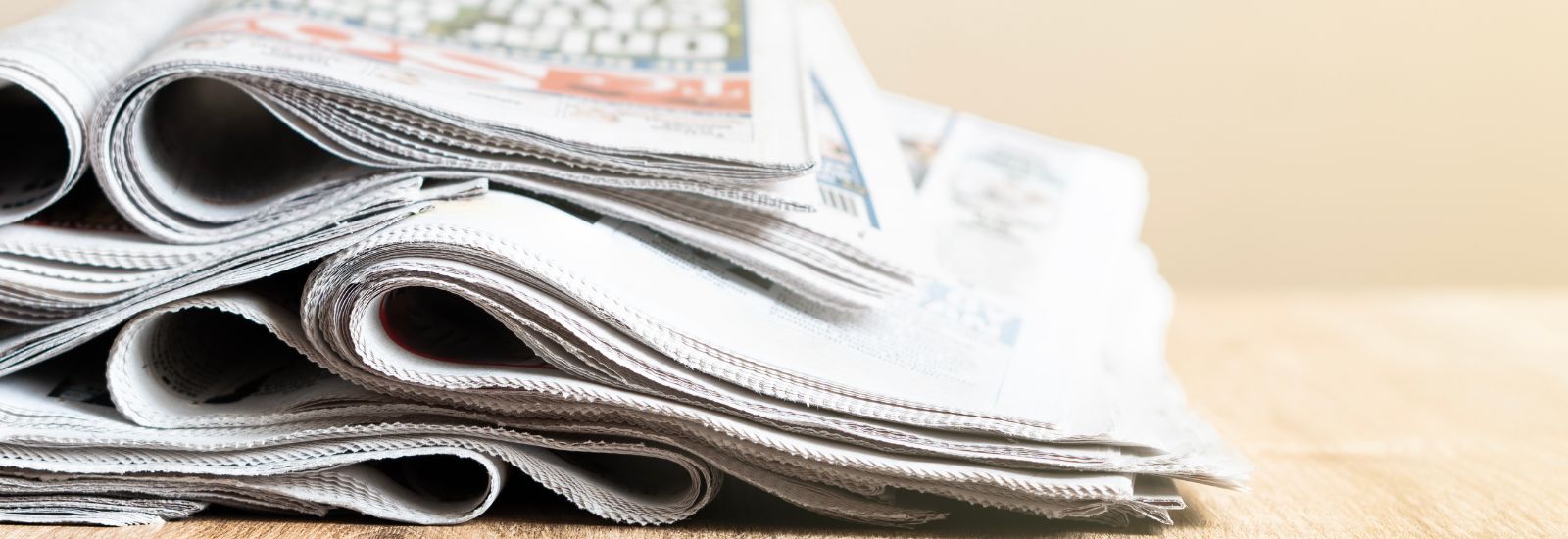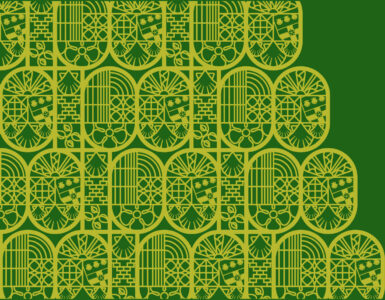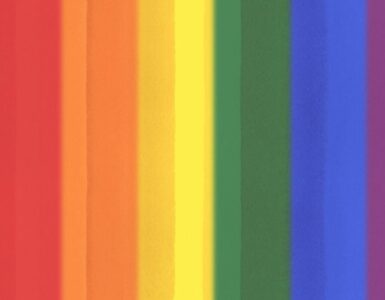UPDATE
Reading graduate, Phil Creighton, received an honorary degree from the University of Reading on 11 December 2025.
Professor Robert Van de Noort, Vice-Chancellor of the University of Reading, said: “A thriving democracy depends on strong local journalism, and Phil has dedicated his career to providing exactly that for our community.
“His commitment to championing local voices, holding power to account, and celebrating community achievements demonstrates the enduring importance of independent local news. We are proud to recognise his outstanding contribution to journalism.”
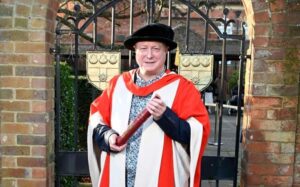 Upon receiving the award, Phil said: “It still feels surreal. I never went into journalism to win awards – my desire was to serve the community I live and work in and keep them informed. It is a huge honour to be recognised for creating local newspapers that people can be proud of. My sincere thanks to all involved.
Upon receiving the award, Phil said: “It still feels surreal. I never went into journalism to win awards – my desire was to serve the community I live and work in and keep them informed. It is a huge honour to be recognised for creating local newspapers that people can be proud of. My sincere thanks to all involved.
“The University of Reading’s various teams worked so hard to ensure the ceremony went smoothly, and the day was memorable. For that, I give my thanks. This wasn’t a one-off return – over the coming years I look forward to supporting students starting their own journalistic careers with The Spark.”
Journalists Are Never The Story
“Well, except just this once,” said Phil as he wrote in his final column in June 2024, after nine years in the editor’s chair of Wokingham Today and Reading Today.
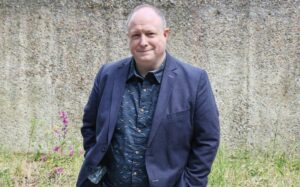 Phil, who studied typography & graphic communication at the University of Reading in the 1990’s, sits down with CONNECTED to become the interviewee, rather than the interviewer for once – and, in a rare move – to make himself, the journalist, the story.
Phil, who studied typography & graphic communication at the University of Reading in the 1990’s, sits down with CONNECTED to become the interviewee, rather than the interviewer for once – and, in a rare move – to make himself, the journalist, the story.
Soaking it all up
After a bumpy road to Reading, delayed by not getting enough UCAS points to take up his place, Phil received “a kick up the backside” from a friend and worked hard to land himself a place in Reading’s Department of Typography.
Phil said: “The Department is extraordinary – a wonderfully quirky place filled with historic type, old printing presses, and incredible people who know everything there is to know about printing from the early to the modern day.
“I was taught by some of the giants in the world of typography – from Dr Gerard Unger and Ken Garland to Martin Andrews. If I could go back, I’d be telling myself to just soak it all up. I had the most wonderful tutors and went on amazing trips abroad, including Germany and Italy to discover the history of typography and printing.”
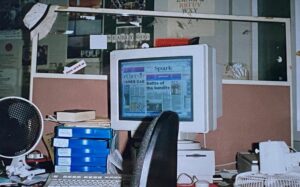
It was very early on in Phil’s student days – at the 1996 Fresher’s Fair – when his journalism journey began as he stumbled upon the University’s student newspaper, The Spark.
He recalled: “I used to borrow my dad’s typewriter as a kid to write stories and make newspapers. But this passion went untapped until I got to Reading.
“It never occurred to me that the University would have its own newspaper, but I was determined to get involved. This weekly student newspaper was a very special playground, which trained future editors and gave students a voice.
“We didn’t just write it – we also laid the pages out, took it to the printers and distributed it around campus. I couldn’t have asked for a better starting point and I learnt so much from my fellow students.
“I started off as a writer, then got involved in the page layout, and then worked my way up to deputy editor in the summer term of my first year. At the start of my second year I became editor, which I did for half a year. I vividly recall that my first edition as editor was about the St George’s Hall catering team banning ketchup. Some students didn’t like the food so they wrote about it in ketchup on dinner trays and the catering team retaliated by banning ketchup. That story made it into the Mail on Sunday!”
The world of newspapers
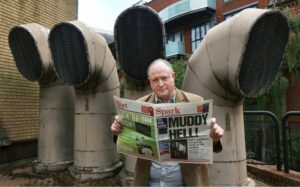 It was through delivering The Spark’s finished pages – on discs the size of dinner plates – to the Reading Post offices, that led Phil to his first paid job in the industry.
It was through delivering The Spark’s finished pages – on discs the size of dinner plates – to the Reading Post offices, that led Phil to his first paid job in the industry.
He said: “I got a part-time job setting property adverts, which I did for the last two years of my degree. When I graduated I became a teaboy who learned on the job.
“Once I had ventured into the world of newspapers I knew it was definitely for me. What’s even better, is that I’ve managed to use my typography degree every day in my editorial career. I am evangelical about it and still refer to my old typography books to this day.”
Phil shared that one of his real passions is setting the ‘What’s On’ listing. He said: “A lot of people stare blankly at me when I say this, but this listing allows me to use my typography skills to bring order to the chaos and present what’s on at the theatre and cinema in a way that is easy to read and navigate.
“From the very first day I walked into the editorial department, people came to me for advice on typographical questions and let me design things. When the 9/11 disaster happened in 2001, we produced a special print edition. I had a very minor part to play in getting that edition to press which involved using my typography knowledge – this helped keep others informed about the disaster and I feel very grateful to the University for teaching me these skills.”
Championing the community
Phil is proud to have spent much of his career working for a local paper – and, aside from five years at the Baptist Times between 2002 and 2007, Phil has spent all his career in the Reading and Wokingham areas.
He said: “Wokingham Today and Reading Today are hyperlocal newspapers – independent publications owned by people who live and work in the locality.
“We’re there to champion the community. For example, when the Arborfield Green development was being mooted in Wokingham we asked the developer questions on the community’s behalf. We also help raise awareness of issues – for example, a councillor came to us with a problem he was struggling to get taken seriously. We put it on the front page and he got a result. We celebrate the amazing things people do and we cheerlead for our communities.
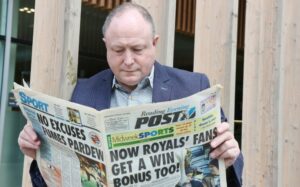 “A local newspaper should reflect the community it serves. It’s there to report on everything, from the village fetes and jumble sales, to the big fires and serious incidents.
“A local newspaper should reflect the community it serves. It’s there to report on everything, from the village fetes and jumble sales, to the big fires and serious incidents.
“In the trade, we talk about eyeballs on the page. Simply put, if we aren’t featuring pictures of our readers across our newspaper, then we aren’t doing our job properly.
“Every community needs a trusted local news source, and I’m proud that over the past decade we became that for Wokingham and Reading.
“When I came to university here, I fell in love with Reading. One of the reasons I’ve stayed, and became a local not a national journalist, is because of my love for this place. Reading is a town that’s comfortable with itself, it knows who it is and it likes people for who they are.”
The next adventure
So, as Phil brings 27 years in journalism across Reading and Wokingham to a close, how does he feel as he prepares to embark on his next adventure?
He said: “Honestly, it’s weird being interviewed, instead of being the interviewee. But I’d have to say that the sheer variety in this job is incredible and I love that no two days are ever the same. It’s hard work though – particularly jumping out of bed to cover emergency events. It quite literally is a 24/7 job.
“But cut me and I’ll bleed newspaper ink. So I’ll be staying in the industry, working two days a week in London and freelancing the rest of my time.
“Studying at the University of Reading has opened more doors that I could ever have imagined, and I’m so grateful to have come full circle. My relationship with Reading continues through their marvellous Press Office and consulting with University experts and academics. The University is a very special place, and I’m very proud of my time there and my ongoing relationship with it.”
Take a look at Phil’s Cheeselogs website, which celebrates events, activities, clubs and places in and around Reading.

